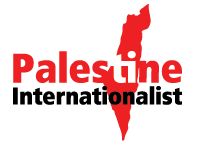

In this article, Victoria Brittain explores the many parallels between the treatment of Palestinians by Israel and that of Blacks by the apartheid South African regime, in particular focusing on the Western powers support for the oppressor in both cases. Brittain concludes that the only effective manner in which Palestine can be liberated is for the people of the world to use tactics similar to those used to topple apartheid – Boycott, Divestment and Sanctions.
Neville Alexander's analysis of post-apartheid's challenges in South Africa has been submitted by the author as a realistic but hopeful view of what a transformed Palestine-Israel can be, as well as sounding salutory warnings on the complacency of a post-conflict state.
Despite this article being written in 1999 during the now discredited “peace process”, its powerful message for the basis of truth and reconciliation in Palestine is equally important today. The writer contends that the people of the region can never move forward unless the oppressors humanise those they systematically oppress and the injustices that have been committed are recognised.
Ismail Adam Patel’s book presents a readable account of the early Muslim expansion into al-Sham (modern day Lebanon, Syria, Jordan and Palestine) challenging the superpower of the time - the Byzantine Empire. The book covers Muslim activity in al-Sham from 629-637 CE.
As Gaza is strangled, the main subject of this issue seems out of place if not wishful thinking. What lessons can there be from a transformed state to one whose potential to exist is being systematically destroyed? Within the tragedy that characterises the struggle for survival in Gaza comes perhaps the very ‘lesson’ that not a nascent state but a liberation movement can take from the battle against South African apartheid. Just to survive is defiance, and a victory in itself. As Jeff Halper of the Israeli Committee Against House Demolitions has written elsewhere (http://www.monthlyreview.org/mrzine/halper230108.html):
“We, the peoples of the world, should take great pride and encouragement in this quintessentially civil society refusal to accept subjugation, … For the Palestinians represent far more than just themselves. Their refusal to submit to the dictates of governments, or to governments' lack of interest in the well-being of people in general, reflects the desire of billions of oppressed people for identity, freedom, a decent life and actualization of their collective and individual rights and potentials.”
Whilst there will always be differences between any liberation struggle and any attempt to build a nation, this issue’s contributions look at various facets of that struggle and how the experience of those in South Africa and their external supporters could inform current and future developments for the liberation of Palestinians.
Victoria Brittain’s article stresses the importance of outside support, particularly in the form of the boycott of South African goods. It is this support that proved crucial in many struggles including Algeria and is a must in the case of Palestine. Brittain argues that unlike former struggles where oftentimes atrocities by occupiers and oppressors took time to expose, the internet age means we are in a privileged position to know (should we choose to) the extent of the horrors perpetrated against the Palestinians. We do not need to wait for proof that they suffer before we must act.
Neville Alexander’s vantage is one of post-apartheid state building and the questions left unanswered in the heady days of ‘victory’, when key issues of justice are often forgotten in the euphoria of independence. What challenges face what have hitherto been homogenous factions when power comes in their grasp?
As always, the words of the late Edward Said have profound impact, in this instance on the prospects and method of truth and reconciliation between Israeli and Palestinian. The importance of the concept for oppressor requires the transformation of the foe into an equal, to be conceptualised as human and whole. For oppressed likewise, it is to commit to find the common humanity between victim and oppressor that will transform society and not simply lead to replicas of that of which so cruelly oppressed.
Such histories have existed in the Holy Land. Its history is charted in Ismail Adam Patel’s book, Madina to Jerusalem: Encounters with the Byzantine Empire, reviewed for this issue by Beena Faridi.
Such discussion now may seem ridiculous, yet hope rises, while this editorial is being written. As one wall to divide Israeli from Palestinian is built, another, between Egyptian and Palestinian falls. People, if not governments, still care. From the actions of all those who drove to the border with food parcels, fuel and the necessities of life, we all learn a universal lesson in brother- and sisterhood.
Arzu Merali
Mohamad Nasrin Nasir
Fahad Ansari
December 2007
Copyright © 2005 Palestine Internationalist
source: Volume 3 Issue 2 (Dec 2007), http://www.palint.org/mag.php?issuenum=32
The opinions expressed on this site, unless otherwise stated, are those of the authors.